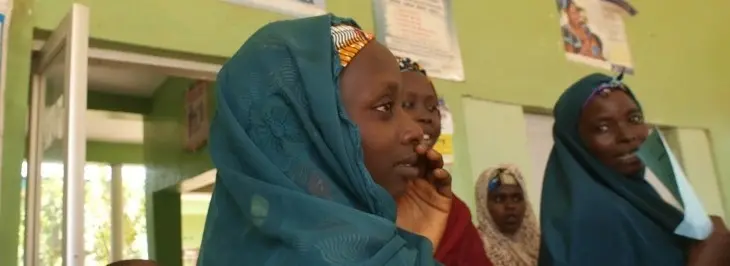Integrating health care services in Nigeria

Nigerian woman
What was the challenge?
The U.S. Agency for International Development (USAID) aims to advance and support voluntary family planning (FP) and reproductive health around the globe, particularly in priority countries such as Nigeria. Short birth intervals contribute to greater risk of adverse birth outcomes, preterm birth and neonatal morbidity. In Nigeria, a variety of barriers limit access to family planning among those who seek services, including women’s ability to travel, and living far away from the nearest health facility.
What was the program change?
New mothers were offered voluntary FP counseling during one of their health clinics visits for recommended child immunizations, an opportunity to reduce logistical and convenience barriers. In addition, the intervention included a script for health facility staff to help women to think through their preferences, and appointment cards for women to use who were not able to access same day services (in order to record their stated preferences). The pilot was designed to explore the feasibility of offering FP counseling (including the script and appointment card) during child immunization visits and to pilot data collection strategies on these important health behaviors.
How did the evaluation work?
The integration of FP counseling with child immunization visits was examined via a pre-post design and the script and appointment cards were tested via a quasi-experimental difference in difference design. The pilot took place in four clinics in Niger and Ogun states, Nigeria, between September 2017 and December 2017, including 677 women attending immunization clinics during that period. All four clinics in the sample piloted offering FP services during child immunizations. Two of these clinics, matched on key characteristics using administrative data, tested the additional provider script for health facility staff and the appointment cards. The outcome of interest was FP take up rates, which were compared before and after the start of the intervention period by clinic.
What was the impact?
There is suggestive evidence that integrating family planning in immunization clinics increased attendance in family planning clinics around the time of the study. However, many mothers reported needing more time to consider options and deliberate with their spouse. Lessons on the effect of the script and appointment card are limited, as implementation of the script may have varied across clinics.
As a feasibility study, this project does not have an Analysis Plan.
